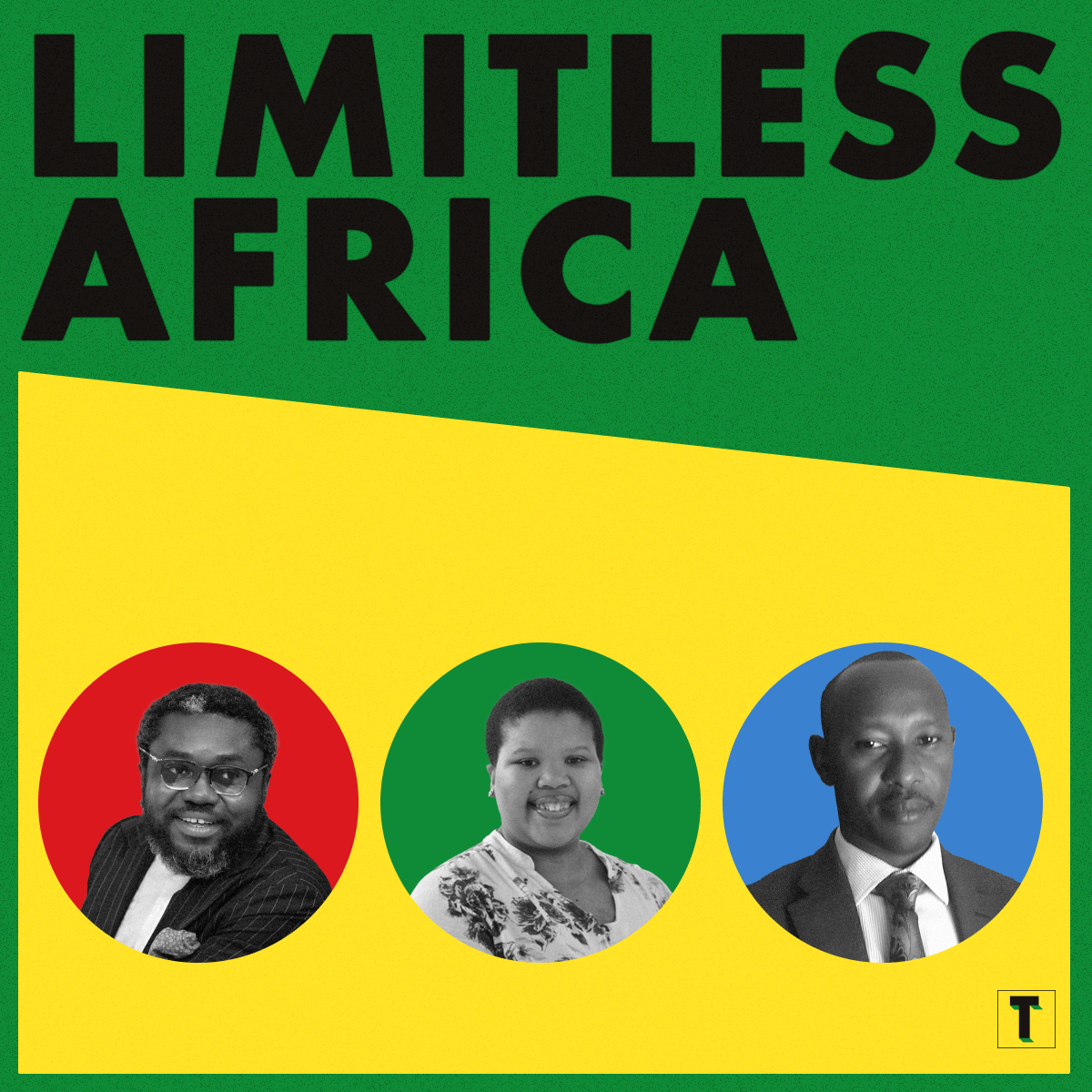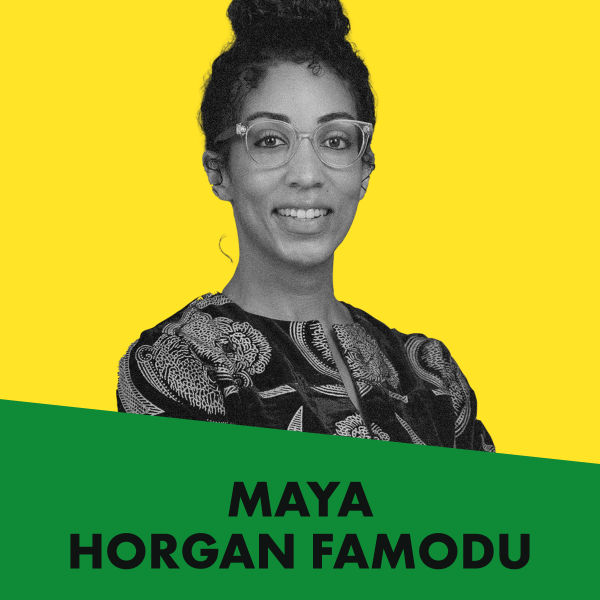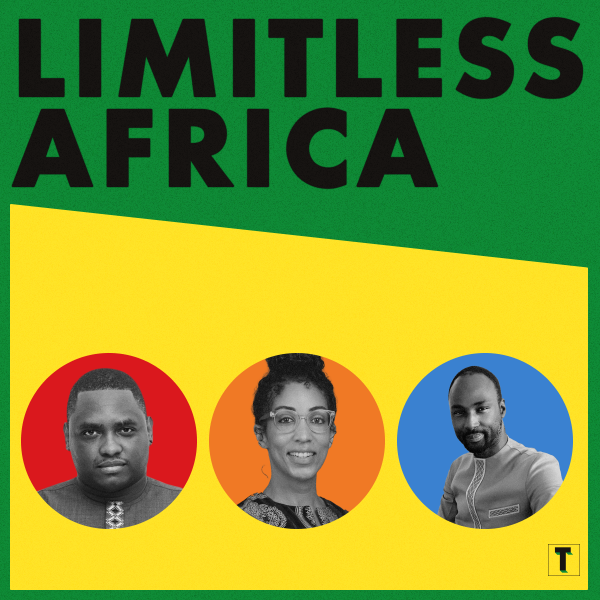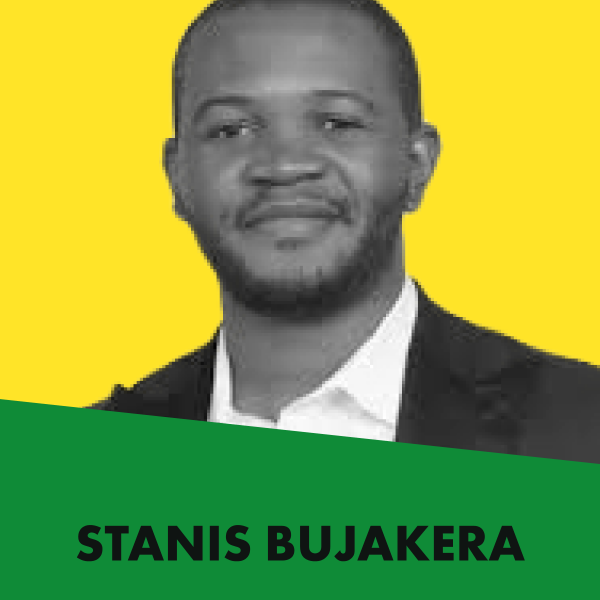Should young people bother voting?
With guests Oliver Barker-Vormawor, Seth Karamage, Yanga Malotana

Episode notes
A look at some of 2024's biggest elections
Transcript
It’s a year of big elections in Africa. In South Africa, Ghana, Rwanda to name a few. But in some of those countries, the opposition is weak or non-existent. And the election result isn’t in doubt. So should young people bother voting? We asked three ...
It’s a year of big elections in Africa. In South Africa, Ghana, Rwanda to name a few. But in some of those countries, the opposition is weak or non-existent. And the election result isn’t in doubt. So should young people bother voting? We asked three activists working for democracy this very question. No surprise – they don’t all agree.
Yanga Malotana is a project officer for the Democracy Development Program in South Africa.
Oliver Barker-Vormawor founded the #FixTheCountry movement a non-partisan movement advocating for good governance in Ghana.
Seth Karamage is a development economist specialising in peacebuilding and good governance in Rwanda.
The views expressed in this episode belong to their speakers. Limitless Africa and its sponsors do not support any of the candidates or parties discussed in the episode.
Transcript
Should young people bother voting?
`
In this episode we’re talking young people and the ballot box
“Young people not prioritising voting does not mean that they don’t prioritise democracy.”
“The support for political parties is almost like my support for FC Barcelona.”
“I consider this voting as also a civic education programme.”
Welcome to Limitless Africa, the podcast that asks the questions that matter for Africa.
In each episode, we’re asking three guests one question that matters to Africans. We’re looking for African solutions to African problems.
The Limitless Africa podcast is supported by the U.S. Department of State and the Seenfire Foundation.
I’ve always thought it was important to vote. And a privilege. But many young Africans aren’t so sure. It’s a year of big elections in Africa. In South Africa, Ghana, Rwanda to name a few. But in some of those countries, the opposition is weak or non-existent. And the election result isn’t in doubt. So should young people bother voting? We asked three activists working for democracy this very question. No surprise – they don’t all agree.
First up is Yanga Malotana from Johannesburg. She’s a project officer for the Democracy Development Project. Our journalist Dimpho Lekgeu spoke to her.
Dimpho:
Now Yanga, despite the power of young people in the electorate, there has been a decline in youth voter turnout. What do you think the reason for this is?
Yanga:
The easy copout answers, I’ll call it, is this idea that youth are apathetic, they don’t care about politics, but I think more and more evidence is coming out that that is not the case.
Young people not prioritising voting does not mean that they don’t prioritise democracy.
They sometimes feel as though other forms of democratic participation are more valuable to them in meeting them where they are and having their voices heard. More than being able to cast a vote. Now I’m not saying that that is not something without its faults because a democracy rests quite heavily on the vote.
Perhaps it’s not necessarily an instinctual thing that they’re doing more prioritising the vote because they don’t necessarily care about it, but it is because of where they are in their lives. Because of economic situations.
Dimpho:
Why do you think that the youth vote is so important?
Yanga:
Young people have always always been pioneers, regardless of the generation time period that a person looks. Again if we refer to it from a global phenomenon. We think about the civil rights movement in America, a large base of it was young people. The same way that we can look at the people who were the anti Vietnam War, was young people who were pushing for peace.
What is crucial now in 2014, something that is crucial for young people to recognise is unlike the young people of 1976 who had to use the protest to be able to break the barrier. That was their only weapon.
Young people in this new baby South Africa have the ability to not only use other traditional forms of democracy to be able to break the barriers such as protests, but now is the key moment that the vote holds the power for young people to be able to break these barriers.
Dimpho:
How do we get young people to start participating in the electoral process again?
Yanga:
I think social media has played a very significant role to a certain extent. The HSRC did a study recently last year in 2023, where they went on to do a field participant study with young people and a lot of young people have increasingly gotten more information and motivation to care about voting from their community leaders, more than they have, for example, influencers per se.
And I thought it was a very interesting statistic, is the fact is that young people have towards their own community leaders about the importance of the vote.
So I think what’s happening right now is that we see a shift in culture and how we participate in democracy in South Africa.
But also above and beyond that the ability for specific political parties to frame their manifestos and their message in a way that is clear and concise and is understandable for people to comprehend has made the world of a difference.
Claude:
Oliver Barker-Vormawor is a governance advisor who’s worked in various African countries, in the US and for the United Nations. He’s one of the founders of the #FixTheCountry movement in Ghana in 2021. The movement is politically neutral and is designed to rally young people around transparency and democracy. Here’s our conversation.
Ghana is in a pivotal year because this is the year of the next general election, and Ghanaians will be called on to choose their next president, as well as other elected leaders. Traditionally, turnout for young people in Ghana has been quite high. So when Ghana prepares to go to the polls in December 2024, what are your thoughts on the election and specifically what young people can do?
Oliver:
Ghana has always voted well but governed very poorly. We noticed as part of our mobilising one thing which has been discouraging: people’s sense of civic duty starts and ends at elections, unfortunately.
We started #fixthecountry somewhere around April 2021. Ghana’s presidential election was in 2020. There had just been three months since the elections, and every time we went into different communities and spoke to different audiences, the questions they would ask us: so why should we vote for them?
And we would say: Wait, we just finished three months ago, why are you in a hurry to vote again? This is not a conversation about who you should vote for, where your vote should go. It’s really about what do we do in between elections.
How do we as citizens receive the public goods that are promised to us and how can we accelerate,or consolidate public demand for accountability?
Let me interrupt you for a second, it’s almost as if the process of voting and being included in the democratic process is almost more important than the outcome.
Absolutely. Absolutely. I think that’s what it’s been over the years. And a lot of the times as well, perhaps because a lot of the parties set up in [places that are] ethnically dominated and perhaps some religious tensions here and there as well. The support for political parties is almost like my support for FC Barcelona, for instance, that no matter how many times they lose, I’m still going to show up as a fan. And that’s what happens in terms of elections as well. People are happy that their party won. And that in itself is exhilarating without more.
We are trying to have a different conversation.
We have been very clear that we’re not really interested in a change of government but in a change of governance. In terms of how we speak and how we carry ourselves,
Perhaps in connection with the election, we’re gonna be setting up alternative ballot boxes for people to come vote for a new Constitution rather than any political party instead.
We want to centre the attention on the questions around the constitution that concentrates power with the political class creates so much social inequality in terms of how, you know the national cake is distributed, that we is going to be our way in, but trust irrespective of what we do Ghanaians are going to show up at the polls and they are entitled to. But as far as I’m concerned that is no measure of the quality of a democracy?
Yeah, I mean, in my own country, Togo, the constitution was just changed, and people are not even going to be able to vote in the general election that was scheduled for next year, and now it’s going to be a parliamentary democracy going forward, having been a totally presidential regime since independence in 1960. But I digress because you were about to make a point about young people voting and my question is, should they even bother voting?
Yeah. You know, I do think that there’s more of a sense of disinclination now among young people regarding the question of voting more and more, I do think that gulf is going to widen in terms of people’s disenchantment with the political class over time. That is going to in the long run affect elections. None of the candidates is presenting younger candidates on the ballot.
None of the issues in the genuine way, issues that young people believe are going to change.
Of course, all of them talk about unemployment, but for 30 years, we’ve been drumming unemployment but it’s getting worse. There’s no real plan for unemployment in the country, so these things are still going to be part of our election.
But what I do sense is going to happen gradually, to the extent that the politics is not solving the problems of many young people. It is even going to undermine in the long run democracy in the region. And perhaps you talk about Togo’s example, a lot of young people who are poor in Ghana are talking about wanting a coup d’état to happen.
Claude:
Well, knowing what you now what do you think is the best way for young people to bring about change?
Oliver:
So elections are only one way of showing up. Young people care about disenfranchisement when the electoral commission for instance puts in place mechanisms that make it difficult for young people to be registered on the ballot. They will show up and protest, petition, all these different things, when it’s about issues of corruption, they will support actions to impeach and things like that.
Those things count way more in the long run of holding elected officials accountable, and look at the ways in which we are directly trying to get more young people put their energy towards, you know. And I think that’s ultimately what has made mature democracies work. By having different interest groups that are invested in the democratic process beyond elections that is key.
Claude:
Seth Karamage is a former soldier in the Rwandan Defense Forces. He’s now a development economist specializing in peacebuilding and good governance. He’s been working with University of Massachusetts on democracy initiatives in Nigeria and Somalia. Here’s our conversation.
Seth Karamage, welcome to Limitless Africa.
Seth:
Thank you. Thank you for having me.
Claude:
Wonderful. It’s wonderful to have you. Why bother voting if I’m a young person in Rwanda?
Seth:
Please, young people, even Rwandans, stand up vote! Because I consider this voting as also a civic right and a civic education programme.
In my own understanding of promoting sustainable peace, sustainable economic development, is actually building a system that is bottom-up approach.
For example, if these legislative members are going to be elected from different divisions, that is to tour the country, at least these are people whom these young people or the voters, can call upon when things are not going well, even when they cannot talk to the president directly. But these are people they can hold accountable.
So I think for them, actually vote for these people and have a basis or a platform where you can complain about poor performance of leaders or any other official other than the President. This is actually going to create the checks and balances for those that are not doing their job.
Claude:
If we take it back to the presidency itself, which is really the main office in Rwanda and many other African countries, when we consider that Kagame has been in office for a long time since he was 36 years old, as you said, Do you think that he should be thinking now of grooming another leader who might take over?
Seth:
Grooming to me I believe that shouldn’t focus on an individual, It should focus on a system.
Let’s say if Kagame stepped down today. Can we have another Rwandan that is as competent as Kagame to step in? That is the question we can ask ourselves.
So for me, I am saying that I wouldn’t want to see him saying that’ I’m grooming somebody’ because that can actually create bias among different citizens.
I think it is very important for him to build a system of competent people, free people, confident people for everyone to show that you are able to lead.
Claude:
Thanks to all our guests. We need to hold our public servants accountable. Through community activism, peaceful protest, and of course the ballet box. Thanks for listening. Please share this episode with anyone who cares about democracy.
The views expressed in this episode belong to their speakers. Limitless Africa and its sponsors do not support any of the candidates or parties discussed in the episode.
Listen next
"It wasn't just an overnight thing. Seeds were planted."
With guests: Maya Horgan Famodu
LISTEN NOW 55 min
How did I make my first million?
With guests: Maya Horgan Famodu, Moulaye Taboure, Moutagna Keita
LISTEN NOW 15 min








